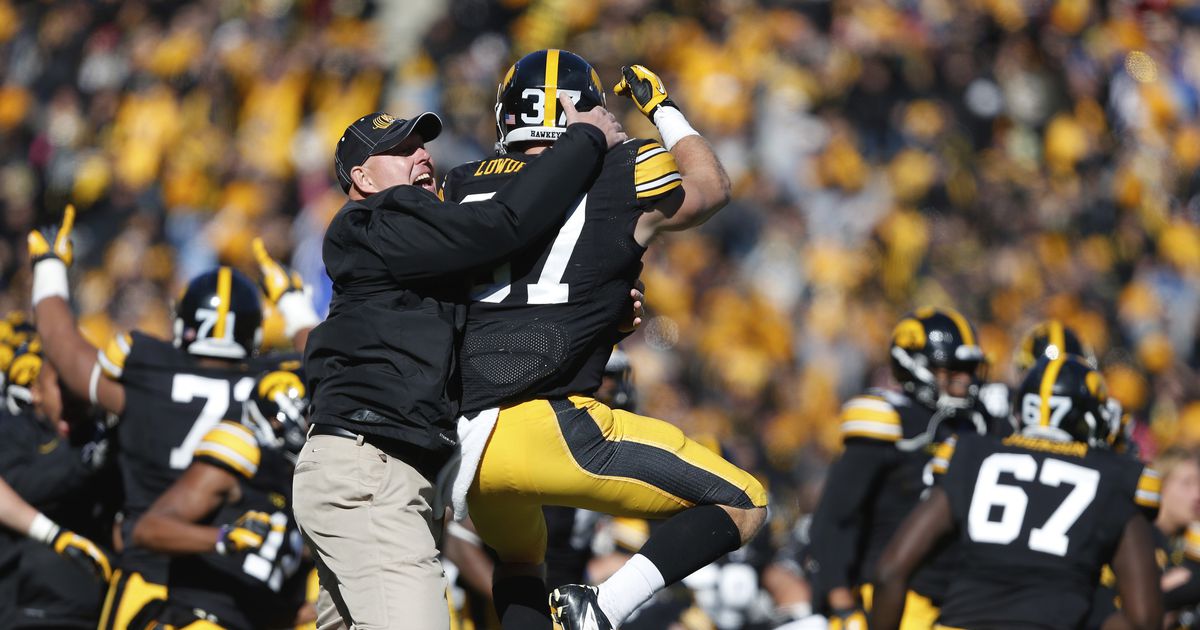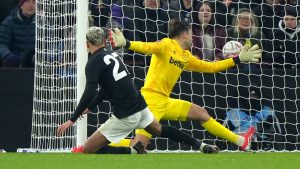Ferentz, players say positive change underway for Hawkeyes


IOWA CITY, Iowa (AP) — The Iowa football team took a big step toward improving its lines of communication in the week since the program was hit with allegations of systemic racism, coach Kirk Ferentz and three of his players said Friday.
Players returned to campus to begin voluntary workouts and spent two days with coaches voicing concerns about the program’s culture.
“The players did most of the talking,” Ferentz said. “It was raw. It was powerful. And it was productive. Everything was on the table. It got somewhat heated and somewhat emotional at times, and I think that’s good. That Monday meeting was about as an emotional and powerful meeting as I’ve ever seen.”
African American players Kaevon Merriweather and Ivory Kelly-Martin along with Keith Duncan, who is white, appeared with Ferentz at a news conference. All said progress was made this week.
“Everybody got what they wanted off their chest,” Merriweather said.
Kelly-Martin said, “We all have a lot of hope in our hearts this program is going to be able to change for the better and we’ll be able to show you guys that real soon.”
Former Iowa offensive lineman James Daniels, now with the Chicago Bears, was the first to raise the issue of the Iowa staff’s treatment of players.
“There are too many racial disparities in the Iowa football program. Black players have been treated unfairly for far too long,” Daniels tweeted last Friday.
Dozens of former players followed with social media posts about their experiences, with many accusing longtime strength coach Chris Doyle of making racist remarks and belittling players. Doyle was placed on paid administrative leave last Saturday, and Ferentz declined to comment on his status, citing a university investigation.
“There were serious and troubling comments by former players … and it comes during an important time during our nation’s history with what happened with George Floyd and the worldwide reaction to his death,” Ferentz said. “It’s given us all a better and deeper understanding of what racism and bias is and I think it’s begun an initiative for real change. As a team and program we have a responsibility and a tremendous opportunity at this moment to lead the change and set a higher standard for collegiate football.”
Ferentz announced 21 current players were named to the team’s 2020 Leadership Group. The nine seniors, three juniors, six sophomores and three redshirt freshmen will assist in formulating team policies and also be involved in team decision-making. A committee of former players led by Mike Daniels also will offer input on building a positive atmosphere.
Ferentz said he spent a lot of time talking with former players after James Daniels’ initial tweet. Ferentz said many expressed appreciation for the help they received achieving academic and athletic goals, but he also was told of mistreatment by Doyle and other assistant coaches.
“The coaching style by some at times was demeaning and created unnecessary frustration and anxiety,” Ferentz said. “One byproduct of that is that some of our black athletes feeling they couldn’t be themselves in our culture, and to that end we must be more inclusive and more aware.”
Former Iowa linebacker Terrance Pryor said Doyle had told him he should take up rowing, then added, “Oh, wait, black people don’t like boats in water, do they?” Former safety Diaunte Morrow alleged Doyle had told him he would send him “back to the ghetto.” Former defensive back Emmanuel Rugamba told of Doyle admonishing a black teammate and then asked him why he walked with swagger. “I’ll put you back on the streets,” Doyle told the teammate, according to Rugamba.
Doyle, who earns $800,000 a year and is the highest paid strength coach in college football, issued a statement Sunday denying any “unethical behavior or bias” based on race.
Offensive coordinator Brian Ferentz, Kirk’s son, also was alleged to have made insensitive comments. Kirk Ferentz did not directly address his son’s behavior.
The 22nd-year coach acknowledged he had a “blind spot” about the way players felt about their treatment until James Daniels’ tweet.
“I can’t do anything about what’s happened,” he said. “What I can do is try to do a better job moving forward.”







